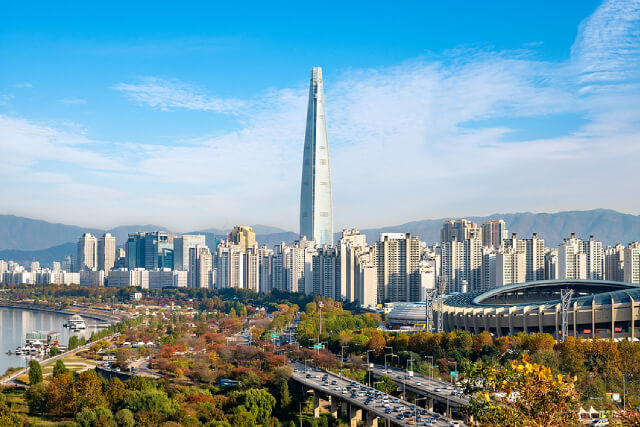As one of the Four Asian Tigers, there is a myriad of reasons that may entice somebody to drop everything they have and move to South Korea. Seoul, in particular, is a crazy hubbub of lights, skyscrapers, cute cafes and temples – it’s a wild yet seamless blend of traditions and globalisation. Moving there as a foreigner who knows little to nothing about the country or its cultural and social dos and don’ts, you’re bound to experience the ups and downs of expat living. To help you better adapt to this beautiful country, here are some of the pros and cons of living in South Korea.
1. Comfortable and convenience
If you’re moving to South Korea, chances are, you’d be integrating yourself with the city folk. In South Korea’s metropolitan areas, modern accommodations offer facilities and amenities that make staying easy. Most apartments are equipped with kitchens, washing machines, floor heating and the like for your convenience.
Apart from the accommodations itself, the way the Korean society is run is built for convenience and ease. For instance, getting around the country is really easy as their subway and local bus networks are both efficient and streamlined! Additionally, Korea’s rampant delivery culture allows you to deliver anything from foods to groceries, and they’d arrive at your doorstep within minutes!
2. Amiable people
Like many Asian societies, South Korea has a hierarchical structure in placed wherein etiquette and decorum are largely dependent on the relationship dynamics between parties. For instance, you’ll need to use formal language and etiquette when speaking to an older individual, regardless if you know them or otherwise.
That said, it doesn’t necessarily mean that South Koreans are cold and distant. In fact, the majority are extremely welcoming and friendly. When you settle down in South Korea, the community will welcome you with open arms. Don’t be surprised if an elderly Korean lady goes out of your way to help you out when you require help!
3. Expensive nation
The most significant issue you will face whilst staying in South Korea is that the cost of living can prove to be quite expensive. For accommodation alone, expect to pay an average of SGD 1600 for an apartment in Seoul. Granted, your rental costs will not be as high if you were to live outside the metropolitan areas, particularly Seoul. If you wish to have a taste of home, foodstuffs that are not local to Korea can be rather expensive, especially since most stores sell products in bulk. The same could be said for dining out.
Make sure to do plenty of research before you make your move. Figure out your monthly budget and compare it with your gross income to see how much leeway you have to do what you need and want to do.
4. Extremities of temperature
South Korea does not have moderate weather. Despite having 4 distinct seasons, the temperature differences between the hottest part of summer and the depths of winter are extreme. Moreover, spring and autumn only last a few weeks. Furthermore, you’ll also need to prepare for the Yellow Dust season wherein there’d be a high increase in industrial pollutants, viruses, bacteria and even heavy metals – pollutants that can severely affect one’s health.
As such, you’ll want to prepare yourself for not only their extremities in temperature, but also prepare masks and air purifiers to combat the Yellow Dust.
Thus, if you plan to do a Korean language course in Singapore to make it easier for you to settle down in South Korea, you should weigh the pros and cons of living in the country carefully. It is indeed a country that offers excellent opportunities, especially if you are looking to build a career. Moreover, the living provisions provided by the state are also significant. If you can adjust to these idiosyncratic societal attributes and cultural habits, living in South Korea would be an exciting experience.


